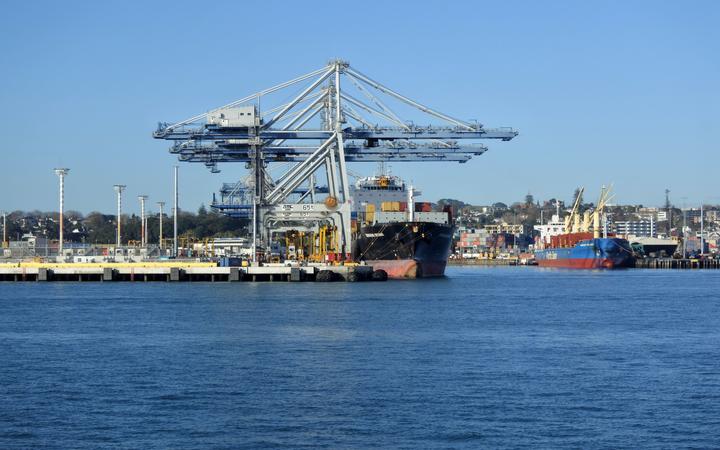An economic analysis backing the move of the Port of Auckland to Northland has been panned as inadequate, poorly drafted, and full of padding.

Ports of Auckland. Photo: 123RF
The final report of a working party looking into the proposal was delivered to the government last week, giving its backing to a $10 billion move to Whangārei’s Northport, with the economic justification for the move contained in a report by advisory firm EY.
But Auckland’s port company has had the EY report put under the microscope by two economic consultancies – the New Zealand Institute of Economic Research (NZIER) and international firm Castalia.
Both studies said the EY report was short on numbers, made simplistic assumptions, and underestimated the costs of the plan while overestimating the benefits.
“The first and the most obvious point to make is that the report entitled ‘Economic Analysis of Upper North Island Supply Chain’ is nothing of the kind as it provides absolutely no information on how the supposed benefits are estimated,” the Castalia report said.
“The report is poorly drafted and contains almost no supporting evidence.”

Northport in Whangarei. Photo: 123RF
Castalia said the EY study appeared to underestimate the cost of shifting the Port of Auckland to Northland by up to $3bn, while it overstated the benefits to Auckland City from freeing up waterfront land, and seemed to ignore that a shift north would likely see importers and exporters in the region put their business through the Port of Tauranga.
The NZIER analysis said the EY study was full of padding and speculation.
“The report has failed to address the feasibility question with sufficient transparency to provide a credible basis for advice to ministers.”
It also noted that EY had been involved in a 2017 report on the future of the port, which concluded the Firth of Thames or Manukau Harbour were best options for relocation and ranked the Northport option lowly.
Head of the Upper North Island Supply Chain working group, Wayne Brown, said the counter-review by the Ports of Auckland was “rubbish” and about “job preservation”.
The report given to the government relied on much more than the one EY report, with the group consulting 80 organisations, he said.
And he disputed the suggestion that carbon emissions would be greatly increased, saying Northport was closer for ships to get to and would use more rail and less roading than Auckland.
Ports of Auckland management declined to be interviewed but it a statement said the reviews spoke for themselves.
“They [the reviews] show that there are major problems with the EY study and that the idea of moving Auckland’s port to Northland is seriously flawed,” a port spokesman said.

Thanks for sharing. I read many of your blog posts, cool, your blog is very good.